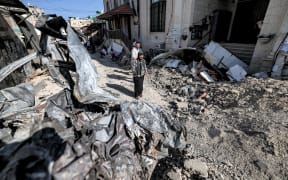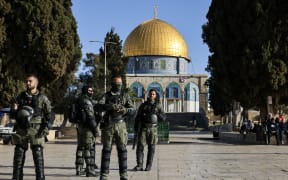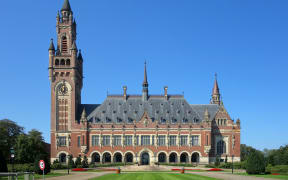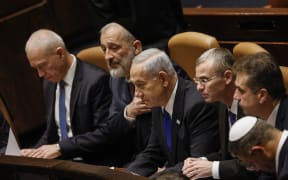
Fighters from the Ezz-Al Din Al-Qassam Brigades, the armed wing of the Palestinian Hamas movement, during an anti-Israel military show in Gaza City, on 20 July, 2022. Photo: AFP
Israel's security cabinet has formally declared war on Hamas, the militant Islamist group that controls the Gaza Strip, following Hamas's unprecedented attack on soldiers and civilians in southern Israel on Saturday.
While the move is largely symbolic, it allows for Israel's military reserves to be called up in greater numbers, potentially laying the foundations for a ground invasion of Gaza.
So what is Hamas, what is the Gaza Strip, and what sparked this most recent Middle East conflict that threatens to escalate into all-out war?
What is Hamas?
Hamas is a fundamentalist Sunni Islamist group which, along with Fatah, forms one of the two major factions within Palestinian politics.
Founded in the late 1980s as an offshoot of Egypt's Muslim Brotherhood and backed by Iran, Hamas advocates for an end to Israeli occupation of the Palestinian territories and the establishment of an Islamic state.
Up until May 2017, its charter also explicitly called for the destruction of Israel, with which it has fought a number of wars over the past two decades.
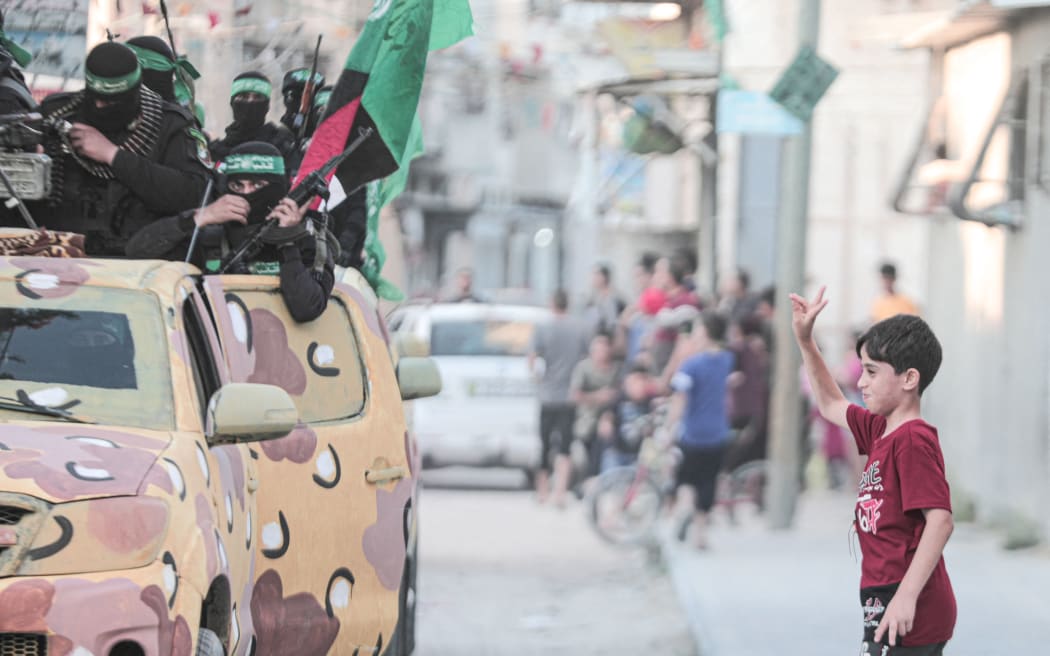
Members of Ezz al-Din al-Qassam brigades, the military wing of the Palestinian Hamas movement, take part in a military parade in Gaza City, on 8 June 2021. Photo: AFP/ Momen Faiz
While officially considered a terrorist organisation by the Australian and New Zealand government due to its embrace of political violence, Hamas nevertheless plays a mainstream role in Palestinian politics, operating as a political party and a provider of social services in addition to a paramilitary force.
Since 2007, Hamas has had sole control of the Gaza Strip, after ousting Fatah from the territory in a brief civil war.
Read more:
- Live updates: Israel on war footing, Hamas threatens to kill captives
- NZ politicians speak out over Israel Hamas violence
- 'I'm just hearing horrific reports', 'We're in a war zone', New Zealanders in Israel say
What is the Gaza Strip?
The Gaza Strip is one of the two main territories, along with the much larger West Bank, which make up the Palestinian territories.
A small strip of land along the Mediterranean coast, it is only 41 kilometres long and between six and 12 kilometres wide but is home to more than 2.3 million people, making it one of the most densely populated places in the world.
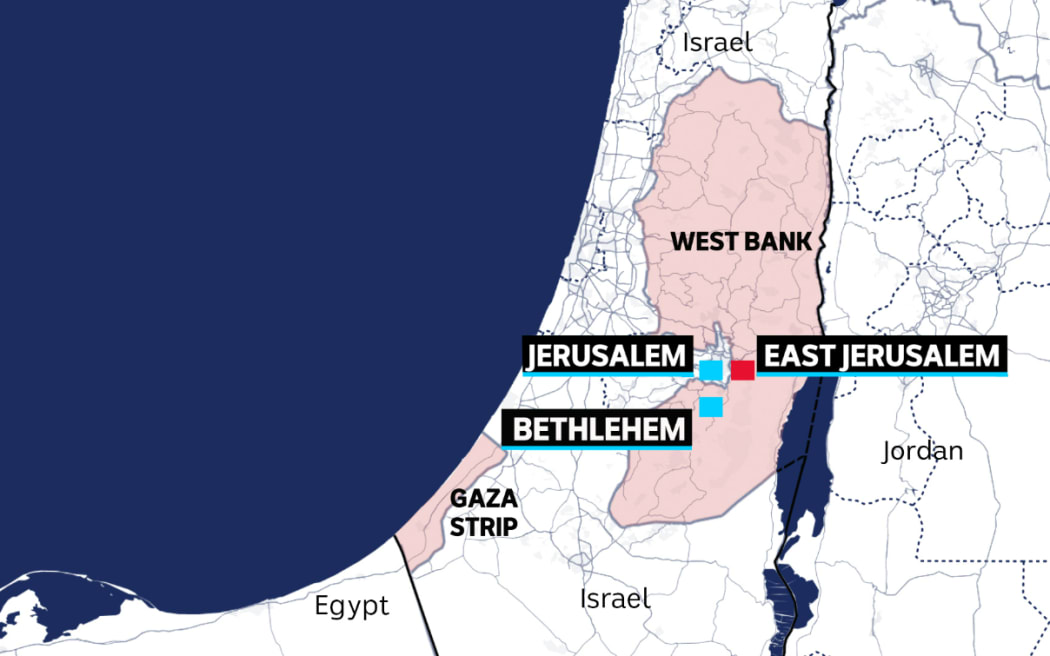
The Gaza Strip borders Egypt along the Mediterranean coastline. Photo: Supplied/ ABC
During World War II, when it was under British control, the territory had an Arab majority and Jewish minority.
After the war, with persecuted Jewish people leaving Europe looking for a safe place to live, the United Nations agreed that what had been known as Mandatory Palestine would be divided into a Jewish state named Israel and an Arab state named Palestine.
The Jewish side accepted this arrangement but neighbouring Arab states rejected it, sparking the 1948 Arab-Israeli war.
For the next two decades Gaza was administered in various forms by Egypt, until it was captured by Israel in 1967 during the Six-Day War.
Since then Israel has either occupied or blockaded thousands of square kilometres of Palestinian territory in Gaza and the West Bank, an action the United Nations maintains is illegal.
Israel directly occupied Gaza up until 2005, when it withdrew from the territory under the government of Ariel Sharon, although it maintained external control.
Hamas won local elections in 2006 then took sole control of the territory in 2007, following a brief civil war against rival Palestinian party Fatah.
Since then, Gaza has been under a strict Israeli blockade, dependent on the Israeli government for electricity, water and telecommunications and with its coastline and airspace controlled by Israel.
Its unemployment rate sits at just over 45 percent, and its infrastructure and health systems are deteriorating.
Goods being brought into Gaza are strictly controlled and its residents, many of whom work in Israel, are only allowed to exit the territory with the proper permits.
What sparked this most recent conflict?
Saturday's cross-border terror attack by Hamas, which took place on a major Israeli holiday and resulted in the deaths of hundreds of Israeli civilians, followed weeks of heightened tensions along the border between Gaza and Israel, as well as heavy fighting in the Israeli-occupied West Bank.
The leader of Hamas's military wing, Mohammed Deif, said the attack was a response to Gaza's 16-year blockade, Israeli raids inside the West Bank over the past year, Israeli incursions at the al-Aqsa mosque and increasing attacks by Israeli settlers.
What is the political calculation of the attacks by Hamas?
Some foreign observers, including US politicians opposed to Iranian influence in the region, have also pointed to the progression of peace talks between Israel and Saudi Arabia as a possible motivator for Hamas, which would have been keen to avoid further normalisation of Israel's relations with its Arab neighbours.
Whatever Hamas's reason for launching its terror attack now, it's clear that the scale and coordinated nature of the attack caught Israel's military and intelligence services by surprise.
An Israeli military spokesperson said that Israel would respond by "attacking Hamas severely", and that it would be a "long, long haul".
What does Israel's declaration of war mean?
The declaration of war announced by Israel's security cabinet was largely symbolic, according to Yohanan Plesner, the head of the Israel Democracy Institute, a local think tank.
But it "demonstrates that the government thinks we are entering a more lengthy, intense and significant period of war," he said.
A major question that remains is whether Israel will launch a ground assault on Gaza, a move that in the past has brought much higher casualties.
Israel has previously carried out major military campaigns in Lebanon and Gaza that it portrayed as wars, but without a formal declaration.
- This story was first published by theABC
